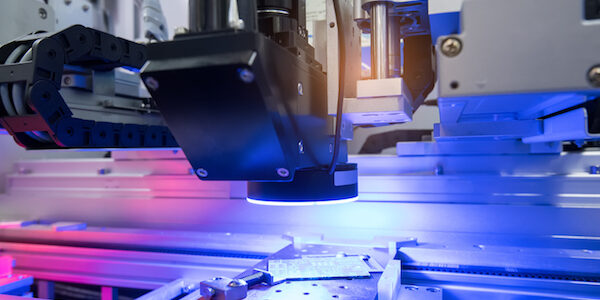Artificial Intelligence (AI) is changing the way we do things. The world of manufacturing is no different. Many manufacturing companies are harnessing AI and Machine Vision to enhance their operations and streamline production processes. Here are just a few ways in which manufacturing firms are leveraging AI to elevate their services:
Defect Detection
AI can help manufacturers detect defects in products faster and more reliably than manual inspection or conventional vision systems. Machine vision, a facet of industrial automation, employs lighting, cameras, and software to extract information from captured images. Deep learning algorithms enable AI to scrutinize images, videos, or sensor data from production lines, pinpointing anomalies, or deviations from specifications. By learning from historical data and feedback, AI adapts to changing conditions, reducing waste, rework, and recalls, thereby enhancing customer satisfaction and loyalty.
Speed
Another key advantage is the dramatic increase in inspection speeds. AI-driven systems can analyze visual data in real time, enabling faster inspection rates without compromising quality. This high-speed processing is essential for maintaining efficient production lines and supporting high-throughput manufacturing environments.
Cost Reduction
The incorporation of artificial intelligence (AI) in machine vision (MV) results in substantial cost savings in the long run. This is achieved through decreased material waste and reduced reliance on manual inspection, resulting in significant reductions in labor costs. Moreover, AI implementation in MV improves safety and ergonomics by minimizing human involvement in potentially risky environments and easing the burden of repetitive tasks on workers.
Predictive Maintenance
AI can also help manufacturers prevent equipment failures and downtime, by using predictive maintenance techniques. By monitoring machine performance and health, AI can help forecast maintenance or repair needs using data from sensors or logs. Advanced analytics tools detect patterns or anomalies, offering recommendations to optimize maintenance schedules and resources. This proactive approach increases productivity, efficiency, and safety while mitigating costs and risks.
Process Optimization
AI can also help manufacturers optimize their production processes by using process optimization methods. Process optimization uses AI to analyze the inputs, outputs, and variables of a process, and find the optimal combination of factors that maximize the desired outcome. Utilizing data from diverse sources and employing optimization techniques such as linear programming or reinforcement learning, AI can solve complex problems and continuously improve solutions in real-time. This fosters quality, performance, and innovation, providing companies with competitive advantages.
AI integration in manufacturing will continue to grow as it empowers companies to enhance quality, efficiency, and innovation while minimizing costs and risks, driving progress in the industry.








